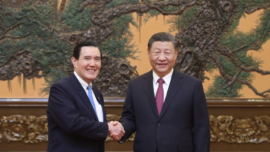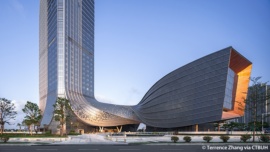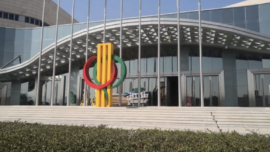Even if there is enough time to realise the new public tender, few believe that, with all the effects of the pandemic still to be assessed, the Government wants to do so in this context.
MB June 2021 Special Report | Gaming: The road to June 26, 2022
The following results should be put into perspective because of when the study was carried out (April 2000, during the lockdown) and because it was aimed solely at North American gamblers; nevertheless, it should not be ignored. Synergy Blue, a manufacturer of arcade-style casino games, published the results of a survey of 1,000 adult US gamblers, and only 51 per cent of them said they will gamble in casinos again once casinos reopen.
Macau Business interviewed Sudhir H. Kalé, CEO of GamePlan Consultants, who has vast experience advising gaming companies on five continents.
First of all, Mr Kalé believes “there will be marked differences in some gambling-related behaviours between US and Chinese gamblers.”
He gave us three main reasons for this variation: first, there are hundreds of casinos in the US, whereas in the mainland, there are none. “Chinese gamblers would have to go beyond the mainland to places such as Macau, Singapore or Russia to gamble.”
Second, compared to the US where the casinos were closed for several months, casinos in Macau (the destination of choice for Chinese gamblers) were closed for just two weeks. “Unlike those in the US, Chinese gamblers did not have enough time away from casinos to develop new consumption behaviours.”
“Even after all the COVID-19 restrictions in China and Macau are lifted, it will be a long, long time before casino revenues in Macau approach pre-pandemic levels” – Sudhir H. Kalé

Third, post-pandemic consumer behaviour in China is more driven by regulations and access to foreign currency than it is by COVID-19. “Even after visa issuance resumed in China, not many customers made the trip to Macau. The visitation numbers during Chinese New Year for Macau were pathetic.”
Sudhir H. Kalé also stated that “a big part of poor market uptake in Macau has more to do with increasing severity of gambling regulations in Mainland China than it has to do with COVID-19. Even after all the COVID-19 restrictions in China and Macau are lifted, it will be a long, long time before casino revenues in Macau approach pre-pandemic levels.”
For this and many other reasons, “it is much more difficult to start discussions and negotiations or to reach practical agreements with gaming operators as well as investors during the COVID-19 period,” Macau Polytechnic Institute Professor Zhonglu Zeng believes. “The situation for the government is not particularly favourable compared with normal times. The government may be able to propose more suitable conditions and requirements in normal times, but right now they might struggle to gain any positive responses from gaming operators,” Professor Zeng added. “Uncertainties have increased, so as a result gaming operators might not want to make certain promises for the post COVID-19 period.”
Carlos Siu Lam, another academic based at the Macao Polytechnic Institute, argued in a paper written just before the advent of COVID-19 that “since article 13 of Law No. 16/2001 states that the concession term is not to exceed twenty years and that a further extension of five years will be exceptional, it is not to be expected that the concessions will be extended, unless exceptional circumstances arise and are as considered by the MSARG.”
Now, Professor Lam concedes to Macau Business that “the COVID-19 pandemic can be an exceptional circumstance. Besides, with the tense US–China relations and the prolonged impact of the pandemic on tourists, it would be prudent to see how these will develop and what will be required of concessionaires in the next public tender for Macau’s future development.”
“I believe that it is still possible to have a public tender, RFP, ready by June 26. However, we should consider extending the current concession/subconcession agreements, not because of the tight timeline but because of the need to wait and see the pandemic’s long-term effects on Tourism, MICE and the Gaming Industry,” local lawyer António Ramirez adds.
The Managing Partner of CAP Holdings Ltd also said, “A new concession agreement will open the door for new taxes, new investment plans that the concessionaires will need to comply with. It is vital to have a clear idea of what the tourism and gaming industry will look like in the next decade or so; waiting two or three years will present a clear picture to maximise the gaming contracts’ role in Macau’s economic and social development.”

“Profoundly affected”
“A Qualitative Investigation of the Impact of COVID-19 on Macau’s Gaming Industry” is the title of a recent research paper by Ka Yin Chau, Jian Ming Luo and Xialei Duan, all from the City University of Macau.
The findings reveal that the casino business “has been profoundly affected by the limitations on tourist mobility.”
The authors highlighted that “the pandemic has also led to a weird atmosphere in the casinos, which affects both customers and casino management. Casinos have reduced labour costs without laying off employees.”
Finally, this study indicates that the gaming industry “will remain the leading industry in Macau despite COVID-19.” However, “collaboration and integration with the Guangdong–Hong Kong–Macau Greater Bay Area is the way of the future for Macau.”
























